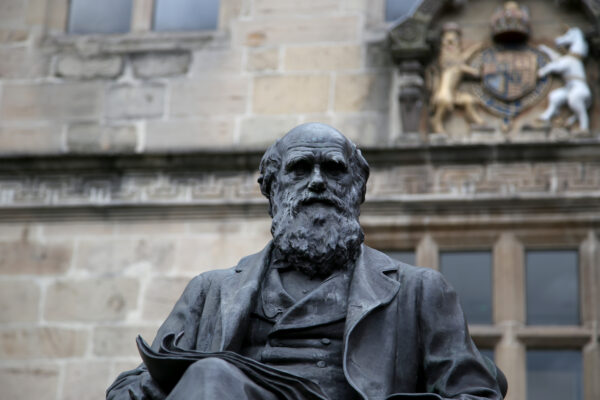Remember: Just because something can’t be seen, it doesn’t mean it doesn’t exist.
Remember: Just because something can’t be seen, it doesn’t mean it doesn’t exist.
In today’s world, young Muslims often face challenges, particularly from atheism, which questions the belief in God based on the fact that He is invisible. Atheists tend to target those with limited religious knowledge, making them vulnerable. However, let’s consider
this logically. Does seeing something with our five senses alone confirm its existence? Atheism asserts that if we can’t see something, it doesn’t exist. However, science tells us otherwise. Many things are invisible to us, yet we believe in their existence. We observe some things directly through our senses, but we infer the existence of others from the available evidence. For instance, we can’t see the atom, yet we accept its existence based on its effects. Our limited senses do not define reality; they merely restrict our perception. Just because we cannot see our Creator, it does not mean that He does not exist. Our Creator is limitless, beyond our comprehension.
Scientific Facts Negating Atheism
It is important to remember that just because we cannot see something, it does not mean it does not exist. There are thousands and millions of things that exist but are invisible to us due to our limitations, yet we still believe in them. While science is the most accurate and authentic source of information, even the most powerful microscope cannot see an atom. Although we have known about atoms for over a century, no scientist has ever seen one. This is an example of invisible knowledge – just because we cannot see an atom does not mean it does not exist. We cannot deny or testify to the existence of things purely based on their visibility. The existence of atoms is widely accepted despite their invisibility. Some people argue that since we cannot see God, He must not exist. However, science and scientists have an answer to this. “Although we cannot see them, we can see their effects”. Similarly, the complexity and organization of the universe suggest that it could not have been created without a Creator. The universe functions on a specific pattern without any flaws, which is evidence of its intelligent design.
Science and religion may seem contradictory when it comes to our perception. Science tells us that atoms exist, even though we can’t see them, and we accept this without question. However, when religion tells us that a Creator exists, we challenge this and question the non-existence of our Creator. Ironically, the acceptance of the invisible is a tool that science has agreed upon. If you say that we can’t understand the existence of Allah, then it’s important to note that with the human mind, we can’t feel the presence of Allah either. Unfortunately, the younger generation is being taught that God doesn’t exist simply because we can’t see Him. However, we can find the Creator through the many noticeable signs of the Creator’s existence throughout the universe. While we can’t see God, the organized symmetry and complexity of the universe is a testament to the Creator’s existence. Science accepts the existence of the atom despite its invisibility, and similarly, the universe’s orderliness suggests intelligent design and points to the existence of a Creator. Rather than focusing on God’s visibility, we should observe the signs of His existence throughout the universe. There are many examples of things that we can’t see, but we can still feel, taste, and differentiate. For instance, we can’t see the scent of flowers, but we can smell them. Similarly, we can taste fruit, but we can’t see its taste, as the source is different. Our tongue can differentiate between 10,000 different tastes, but we don’t know how many types of tastes exist, as our Creator has put all these tastes in our bodies. The human mind is the most important and complex part of the human body. However, if the eyes don’t send messages to the brain, the brain is of no use. The human mind is limited to the messages received by our five senses, and it cannot decode invisible truths that are beyond the vicinity of these senses
Our brain has limitations that prevent us from fully understanding certain things. However, this doesn’t mean that those things don’t exist. We have limited senses, but that doesn’t mean that unseen truths are denied. For instance, just because we can’t see our Creator, it doesn’t mean that there is no Creator of this complex universe. Our
Creator is limitless, and our limited senses can’t deny its existence. In fact, the Creator of this universe exists regardless of our perception of it. It’s important to remember that the Creator is not limited, and perceiving it as such may lead one astray.
Atheists claim there’s no God, but let’s look closer. None of them are scientists. Scientists seek knowledge, but atheists often have personal issues and conflicts with religion. However, many scientists have found evidence of Allah through research, like Dr. Maurice Bucaille, a French doctor who embraced Islam after studying the Quran’s accuracy on Pharaoh’s mummy.
Conclusion
Please note that the following points have been transcribed from a recent five-day lecture series by Shaykh ul Islam Dr Muhammad Tahir ul Qadri. The lecture series was delivered during the annual gathering of Collective Itikaf 2024 in Pakistan, hosted by Minhaj ul Quran International. As a Muslim youth, it’s important to remember that you can find Allah through gaining knowledge, developing a genuine connection with the Quran, introspection, and learning from those who have already found Allah. Unfortunately, many young people today are disconnected from their religion, particularly from the teachings of the Quran. This makes them vulnerable to doubts and confusion about the existence of God and religion, which can often be exploited by atheists.
To avoid this and make informed decisions about your faith, it is essential to have a solid understanding of your religion. By gaining a strong foundation in your faith, you can make righteous decisions and effectively counter the arguments of atheists through comparative studies. We encourage anyone struggling with doubts about the existence
of God and religion to listen to this lecture series titled “Why Believe in God & Why Embrace Religion?” which is available on YouTube.





